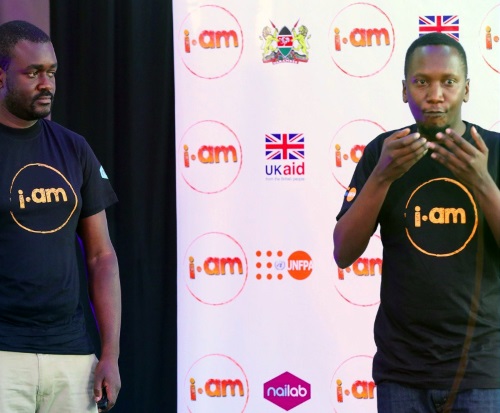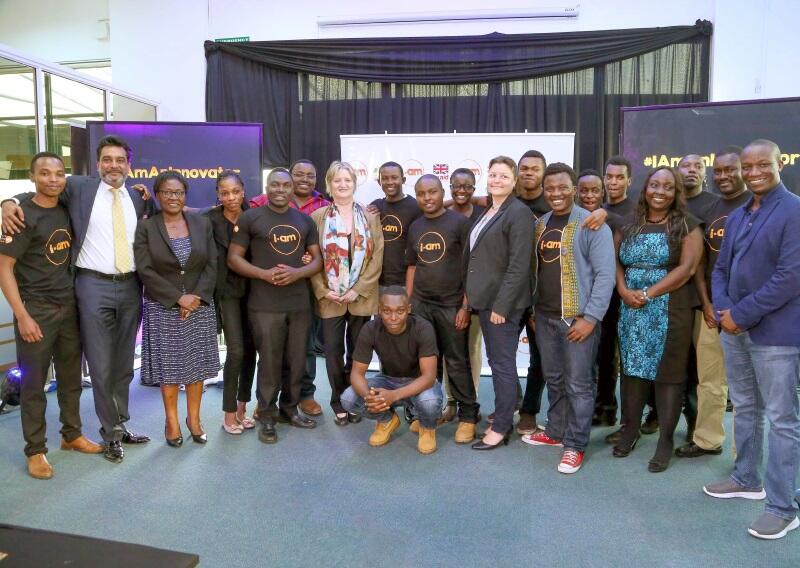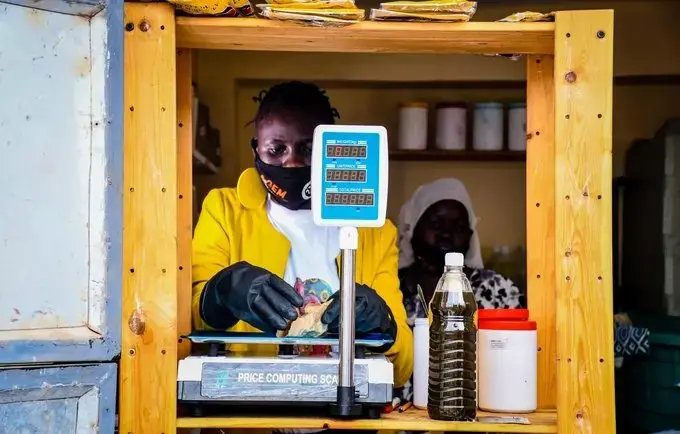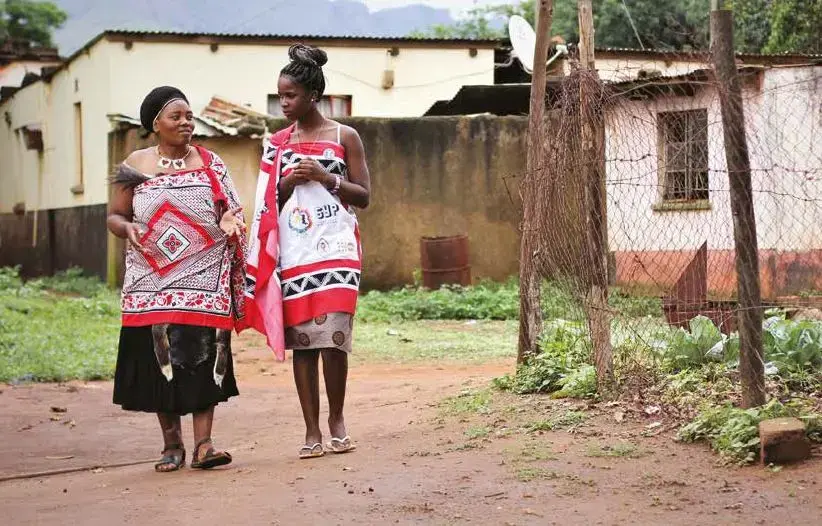Four social entrepreneurs have been selected as the winners of the innovation accelerator, I.AM iAccelerator by UNFPA, the United Nations Population Fund, in collaboration with Nailab, a technology-driven business incubator.
The innovation accelerator aims to catalyze and accelerate innovative solutions that scale up access to youth-friendly sexual and reproductive health (SRH) information and services.
The winners – Fluid, Sophie Bot, Imara TV and Deaf Elimu – will go through a four-month acceleration programme that will pair them with expert mentors, enroll them in business management and development training, and allow them access to seed capital of KES 1,000,000 (US$10,000) to invest in fine tuning their prototype and go-to-market strategy.
The winners were selected from 10 finalists who pitched their solutions to a panel of five expert judges comprised of well-known entrepreneurs and business leaders, together with experts on SRH issues. One of the winners was the group Deaf Elimu, who pitched a web and mobile-based application that targets 800,000 deaf youth users in Kenya who search for SRH information in sign language.
Supporting young entrepreneurs

The Innovation Accelerator is a mentorship-driven acceleration programme supporting young entrepreneurs with seed funding, training and skills development. It aims to generate innovative solutions in response to challenges related to sexual and reproductive health, sexuality education, family planning, maternal health and other population development issues.
UNFPA Representative for Kenya, Siddharth Chatterjee, said: “Sustainable development cannot be achieved without assuring that all young people enjoy the dignity and human rights to expand their capabilities, secure their reproductive health and rights, find decent work and contribute to economic growth. This is what the iAccelerator is all about.”
The I.AM innovation accelerator was launched in Kenya on 13 June by UNFPA in partnership with Nailab, as part of a regional UNFPA SRHR programme funded by UKAID. The Kenya iAccelerator aims to serve as a model for future UNFPA innovation accelerator programmes in the region.
It's been an intense period for the team who have focused on mining and catalyzing innovative thinking by engaging with the best minds as we talk innovations on sexual reproductive health. - Josephine Mwangi, Nailab
Discussing youth sexual and reproductive health
Since its launch, three Boot Camps and several other activation activities anchored on the I.AM Initiative have called on young people to realize their desire to talk about, discuss, learn and understand their sexuality and sexual reproductive health by engaging with credible sources of information in safe and unstigmatized environments. The camps and activation activities reached over 1,500 young people, mainly university students. Through social media, 320,000 people were informed about the initiative and SRH issues. As a result, 92 applications were received and an independent panel shortlisted the 10 who pitched their solutions to the expert panel of judges.
“It's been an intense period for the team who have focused on mining and catalyzing innovative thinking by engaging with the best minds as we talk innovations on sexual and reproductive health. This has been an interesting and quite an unexplored theme and we have learnt a lot from the young people in the process,” said Josephine Mwangi, Head of Communications and Marketing at Nailab.
In Kenya, the initiative has been developed with the support of the National Council for Population and Development (NCPD) and the Ministry of Health to ensure it is aligned with national priorities and will contribute to the realization of Vision 2030. This national long-term development policy aims to transform Kenya into a newly industrializing, middle-income country to provide a high quality of life to all, in a clean and secure environment.
Innovation and the active engagement of the private sector and young people in our work can be a true game changer. - Siddharth Chatterjee, UNFPA Representative for Kenya
Current national statistics by the Kenya National Bureau of Statistics (KNBS, 2014) and the National AIDS Control Council (NACC, 2014) indicate that
In Kenya, more than 29,000 young people between the ages of 15-24 become infected with HIV every year. One in every five teenage girls have begun motherhood, with approximately 13,000 dropping out of school each year to raise their kids. In addition, nearly half of all abortion-related complications occur among girls below 25 years; this is one of the leading causes of maternal deaths and injuries.
"The challenges UNFPA seeks to address, and the opportunities we strive to realize, are too complex for any one sector to face alone. Innovation and the active engagement of the private sector and young people in our work can be a true game changer," said Mr. Chatterjee.
Profile of winners
Fluid: A mobile game that combines fun and learning by bringing sexual and reproductive health information to life through a game. Faced with challenges to overcome, young people will advance in the game by knowing and learning about SRH issues.
Sophie Bot: An artificial intelligence system fed with information on sexuality and sexual reproductive health that answers young people’s questions about SRH issues. Sophie Bot’s features include anonymous forums and digital chat-bots built on Facebook, Twitter, Telegram and Messenger.
Imara TV: An online crowd sourcing of youth-generated video content on human development and sexuality. The systems utilizes YouTube to disseminate peer educator-accredited content
Deaf Elimu: A web and mobile-based application that will enable deaf youth users to search for specific SRH information in Kenyan Sign Language (KSL). The information will be provided through video and gaming content.
Learn more about the other six finalists, mentors and judges.




